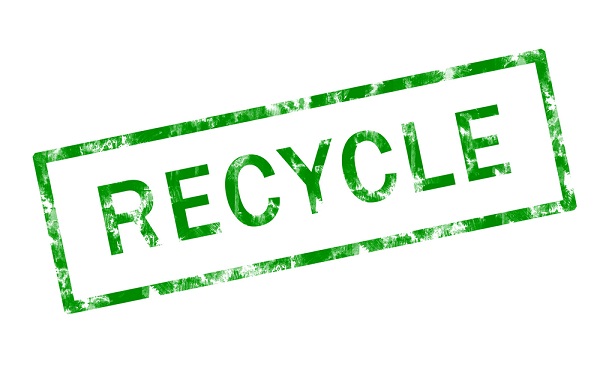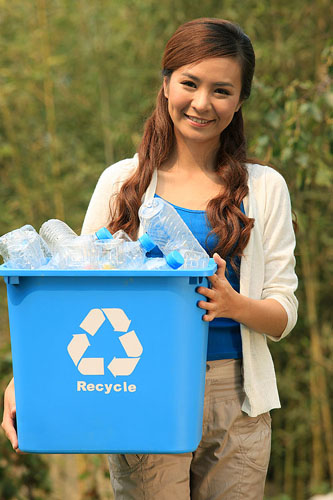How to improve recycling rates is a topic that I have thought about over the years. There is much debate within the recycling community on how to do this. After all we have been recycling here in the U.S. for over 30 years and yet we recycle less than 8% of all plastics. If we look at specific segments of plastic materials we have a higher percentage rate in the 20’s. Still if you had a choice of a 8% verse a 90+% success rate of handling plastics which would you choose? The obvious answer is a solution in the 90+%. This is the approach ENSO has taken with developing our biodegradable additive. Why not have the best of both worlds – recyclability and biodegradability? The paper industry has been doing it for decades; recycling a material that is also biodegradable.
Some recyclers would have you believe that we need to desperately protect the 8% and by doing so will result in higher collection rates. The truth is that increasing collection rates and improving recycling is a complex problem and involves all of us to work together to achieve. It involves communities working towards the common goal. A great example is aluminum recycling. When I was a kid many people would collect soda can and hand them in to make money (incentive). People had an incentive to take the time to collect and bring in aluminum cans to exchange for money.
Is the day coming when recyclers will pay consumers for their recyclable materials? Some recycling programs such as Greenoplis, … have already taken this approach and have seen some success. Would consumers become more incentivized to help in the process of recycling? Would it change our perception of plastic packaging from being more disposable (trash) and more valuable? I think so, and I think that until we incentivize consumers and change perceptions of the value we place on plastics, the old method to motivate consumers to recycling through the “feel-good” or “guilt” response will never result in high recycle rates.
I’ve often thought about what it would look like if retailers such as Wal-Mart opened recycling facilities right in their stores. Where consumers would return all plastic packaging of products sold in the store. As an incentive Wal-Mart could offer discounts or other value added benefits to consumers to get them to bring back plastic and other types of packaging materials to be recycled. An influential company like Wal-Mart could then require companies to use specific types of packaging, possibly eliminating packaging that is more challenging to recycle. There are many ways that this type of program could benefit recycling, giving companies and brands that sell products within the Wal-Mart stores could be provided incentives to use the recycled material or reuse the packaging again and again.
If recyclers really want to get serious about protecting their business, stop squabbling over the little things and focus on the bigger goal – MORE, MORE, MORE!!! More than 90% of your potential revenues are going into landfills; use some of that effort to figure out how to get it!!
Update: Monday May 20th, 2013
I ran across an editorial today in Waste and Recycling News titled, “Editorial: Big Brother in San Francisco?” This deeply disturbing article outlines what the city of San Francisco is doing to enforce its citizens to better sort waste material. The city has hired auditors to go through trash cans to make sure that residence are properly sorting their waste – green bin material in green bin, recycle in the recycle bin and so forth. For those residents that don’t comply or don’t quite sort their waste correctly the auditors are responsible to notify resident of their mistake and for those who regularly don’t get it right there will be fines issued and or educational classes to attend.
My earlier blog discussed the idea of incentivizing its citizens as a method to help improve recycling and waste management processes. In other words how do we better motives people to get involved in this issue and improve recycling. Although our freedoms are slipping quickly, I still believe we are a free people and should bring people together to solve our problems. San Francisco is an example of the exact opposite approach; create laws and to ensure everyone complies create a policing force that levies fines to those not in compliance until all of those citizens do comply. This sounds like pages taken right from an George Orwell novel although its not from a book, its real…

